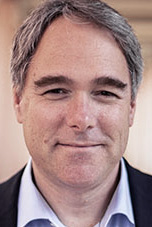

 On September 22, the United Nations General Assembly adopted the Global Digital Compact (GDC), marking one of the most significant intergovernmental agreements on digital issues in the past two decades. Appended to the Pact for the Future, the GDC is a non-binding agreement that outlines a global governance framework for a wide range of digital issues, including internet governance and the Internet Governance Forum (IGF). more
On September 22, the United Nations General Assembly adopted the Global Digital Compact (GDC), marking one of the most significant intergovernmental agreements on digital issues in the past two decades. Appended to the Pact for the Future, the GDC is a non-binding agreement that outlines a global governance framework for a wide range of digital issues, including internet governance and the Internet Governance Forum (IGF). more
The NIS Cooperation Group has released critical guidance for the implementation of Article 28 under the NIS 2 Directive, focusing on registration data accuracy obligations for top-level domain (TLD) registries, registrars, and related services in the EU. more
 The "Decoding Internet Governance Stakeholders" series of articles invites the community to ponder what underlies the labels that define our interactions, roughly 20 years after the "Tunis Agenda for the Information Society" called for the "full involvement of governments, business entities, civil society and intergovernmental organizations," as well as to "make full use of the expertise of the academic, scientific and technical communities." more
The "Decoding Internet Governance Stakeholders" series of articles invites the community to ponder what underlies the labels that define our interactions, roughly 20 years after the "Tunis Agenda for the Information Society" called for the "full involvement of governments, business entities, civil society and intergovernmental organizations," as well as to "make full use of the expertise of the academic, scientific and technical communities." more
 Do human rights come into the picture when technology and policy work are involved? If so, where? This is a question that has come up multiple times during the last dozen years, and occasionally even before, in Internet Governance discussions. These discussions have included debates on whether human rights were specifically applicable to protocol design or to the organizations developing protocol standards. more
Do human rights come into the picture when technology and policy work are involved? If so, where? This is a question that has come up multiple times during the last dozen years, and occasionally even before, in Internet Governance discussions. These discussions have included debates on whether human rights were specifically applicable to protocol design or to the organizations developing protocol standards. more
 At the recent Internet Corporation for Assigned Names and Numbers (ICANN) 80 Policy Forum meeting, one notable takeaway was its close focus on questions around the stability and security of the technical layer of the Internet: the growing risks which assail it, and potential ways to address these through governance. more
At the recent Internet Corporation for Assigned Names and Numbers (ICANN) 80 Policy Forum meeting, one notable takeaway was its close focus on questions around the stability and security of the technical layer of the Internet: the growing risks which assail it, and potential ways to address these through governance. more
 Sixty years ago, Paul Baran and Sharla Boehm at The RAND Corporation released a seminal paper that would fundamentally reshape the cyber world forever more. Their paper, simply known as Memorandum RM -- 1303, described how specialized computers could be used to route digital communications among a distributed universe of other computers. It set the stage for a flood of endless developments that resulted in the interconnected world of everything, everywhere, all the time. more
Sixty years ago, Paul Baran and Sharla Boehm at The RAND Corporation released a seminal paper that would fundamentally reshape the cyber world forever more. Their paper, simply known as Memorandum RM -- 1303, described how specialized computers could be used to route digital communications among a distributed universe of other computers. It set the stage for a flood of endless developments that resulted in the interconnected world of everything, everywhere, all the time. more
 Over the next two years, several global dialogues about our shared digital future are taking place -- and big changes could be in the cards. An intensive series of negotiations will see United Nations (UN) Member States weigh in on the future of digital cooperation -- and multistakeholderism finds itself under the spotlight. The multistakeholder model allows everyone who has a stake in the internet to meaningfully engage in discussions and decisions about its future on equal footing, but a number of critics are calling for change. more
Over the next two years, several global dialogues about our shared digital future are taking place -- and big changes could be in the cards. An intensive series of negotiations will see United Nations (UN) Member States weigh in on the future of digital cooperation -- and multistakeholderism finds itself under the spotlight. The multistakeholder model allows everyone who has a stake in the internet to meaningfully engage in discussions and decisions about its future on equal footing, but a number of critics are calling for change. more
 During the ICANN79 in San Juan, Puerto Rico, in March 2024, the North America School of Internet Governance (NASIG 2024) convened with an over-encompassing theme, "Confronting Truth, Trust, and Hope in Internet Governance." A pivotal panel discussion titled "Can We Survive Digital Fragmentation?" underscored the essentiality of global connectivity and the urgency to understand and address the layers of fragmentation impacting the internet's universal fabric. more
During the ICANN79 in San Juan, Puerto Rico, in March 2024, the North America School of Internet Governance (NASIG 2024) convened with an over-encompassing theme, "Confronting Truth, Trust, and Hope in Internet Governance." A pivotal panel discussion titled "Can We Survive Digital Fragmentation?" underscored the essentiality of global connectivity and the urgency to understand and address the layers of fragmentation impacting the internet's universal fabric. more
 There have been a number of occasions when the Internet Engineering Task Force (IETF) has made a principled decision upholding users' expectations of privacy in their use of IETF-standardised technologies. (Either that, or they were applying their own somewhat liberal collective bias to the technologies they were working on!) The first major such incident that I can recall is the IETF's response to the US CALEA measures. more
There have been a number of occasions when the Internet Engineering Task Force (IETF) has made a principled decision upholding users' expectations of privacy in their use of IETF-standardised technologies. (Either that, or they were applying their own somewhat liberal collective bias to the technologies they were working on!) The first major such incident that I can recall is the IETF's response to the US CALEA measures. more
 ICANN's response to the European Union's Network and Information Security Directive (NIS2) is a litmus test on whether its policy processes can address the needs of all stakeholders, instead of only satisfying the needs of the domain industry. Early indications from the ICANN Hamburg meeting point to another disappointment for law enforcement, cybersecurity professionals, and the many businesses seeking to reinstate WHOIS as required by NIS2. more
ICANN's response to the European Union's Network and Information Security Directive (NIS2) is a litmus test on whether its policy processes can address the needs of all stakeholders, instead of only satisfying the needs of the domain industry. Early indications from the ICANN Hamburg meeting point to another disappointment for law enforcement, cybersecurity professionals, and the many businesses seeking to reinstate WHOIS as required by NIS2. more
The European Union's Network and Information Security Directive (NIS1), introduced in 2016, aimed to strengthen cybersecurity among Member States. However, market fragmentation and growing digital threats led to the enactment of the NIS2 Directive. more
 On October 12, 2023, the 18th Internet Governance Forum (IGF) ended in Kyoto. It was, with more than 9000 registered participants, the largest IGF since its inception in 2006. UN Secretary-General Antonio Guterres and Japan Prime Minister Fumio Kishida opened the five-day meeting. The tangible output included 89 "IGF Messages from Kyoto," four substantial reports with recommendations from IGF Policy Networks (PN) for Artificial Intelligence... more
On October 12, 2023, the 18th Internet Governance Forum (IGF) ended in Kyoto. It was, with more than 9000 registered participants, the largest IGF since its inception in 2006. UN Secretary-General Antonio Guterres and Japan Prime Minister Fumio Kishida opened the five-day meeting. The tangible output included 89 "IGF Messages from Kyoto," four substantial reports with recommendations from IGF Policy Networks (PN) for Artificial Intelligence... more
 With the strong possibility of a new Netmundial-style event being organized under the stewardship of CGI.br in 2024, the Internet governance community ought to reflect upon the benefits that this could bring to all stakeholders. In a scenario of uncertainty over the several processes affecting the future of the global network, there is value in taking another look at the original event's collaborative outcomes document, which summarized much of what was then understood to be core principles of Internet governance. more
With the strong possibility of a new Netmundial-style event being organized under the stewardship of CGI.br in 2024, the Internet governance community ought to reflect upon the benefits that this could bring to all stakeholders. In a scenario of uncertainty over the several processes affecting the future of the global network, there is value in taking another look at the original event's collaborative outcomes document, which summarized much of what was then understood to be core principles of Internet governance. more
 Ali's invitation to post reflections on the past 25 years of ICANN is very welcome. No doubt, some will write about major shifts in how ICANN is governed, for example, the end of United States government oversight. While others will write about changes to the industry that ICANN has catalyzed, for example, the 2012 round of new gTLDs and the upcoming next application process. more
Ali's invitation to post reflections on the past 25 years of ICANN is very welcome. No doubt, some will write about major shifts in how ICANN is governed, for example, the end of United States government oversight. While others will write about changes to the industry that ICANN has catalyzed, for example, the 2012 round of new gTLDs and the upcoming next application process. more
 On 21 August 2023, ICANN org. made its position in relation to the current state of the UN's Global Digital Compact (GDC) clear in a blog post by Sally Costerton (ICANN CEO), John Curran (ARIN), and Paul Wilson (APNIC), entitled "The Global Digital Compact: A Top-down Attempt to Minimize the Role of The Technical Community." The publication strongly criticizes the GDC's attempt at folding the technical community into the civil society umbrella under a "tripartite" approach also involving the private sector and governments, as proposed by the Secretary-General's Envoy on Technology, Amandeep Gill. more
On 21 August 2023, ICANN org. made its position in relation to the current state of the UN's Global Digital Compact (GDC) clear in a blog post by Sally Costerton (ICANN CEO), John Curran (ARIN), and Paul Wilson (APNIC), entitled "The Global Digital Compact: A Top-down Attempt to Minimize the Role of The Technical Community." The publication strongly criticizes the GDC's attempt at folding the technical community into the civil society umbrella under a "tripartite" approach also involving the private sector and governments, as proposed by the Secretary-General's Envoy on Technology, Amandeep Gill. more